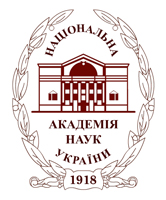Tiurkedzhy Nataliia
Assistive Technologies in Libraries: International and National ExperienceAbstract: The relevance of the problem. In the age of information, when knowledge becomes especially important, the issue of access to this knowledge is also important. In these processes, the introduction and use of assistive technologies in librariesis significant. The purpose of the articleis to analyze the level of implementation of assistive technologies in libraries, based on national and international experience. The methodological basis of the research is the principles of objectivity and comprehensiveness. From the point of view of scientific methodology, the problem is considered on the basis of asystematic approach. The solution of problems was carried out through a system of general scientific and bibliographic methods: theoretical (analysis, synthesis, etc.), empirical (description), comparative, research. Presentation of the maintopic. Assistive technology gives people with special needs a chance to be more productive, independent, and receive education and information without difficulty. One of the main functions of the library in modern society is to provide free access to the Internet, various online tools, resources for training, employment, research, and so on. Conclusions. After studying the experience of foreign libraries in use of assistive technologies, we can identify problems that appear in the national libraries: imperfection of software and low level of knowledge of librarians about assistive technologies. Despitethese problems, today in the libraries of Ukraine there are more and more special centers which are focused on serving userswith special needs. Practical value.The study of foreign practice of using assistive technologies in libraries becomes anecessity and a reason for developing our own program for the implementation of these technologies in Ukrainian libraries. Keywords: assistive technology, assistive products, accessibility, disability policy, inclusive space in the library.
Author(s) citation:
Cite:
Tiurkedzhy Nataliia (2021). Assistive Technologies in Libraries: International and National Experience. Bibliotechnyi visnyk, (1) 48-55. (In Ukrainan). doi: https://doi.org/10.15407/bv2021.01.048
References: - Marina, O. Yu. and Marin, S. O. (2019). Versii WCAG ta dostupnist bibliotechnoho veb-kontentu[Versions of WCAG and accessibility of library web-content]. Visnyk Kharkivskoi derzhavnoi akademiikultury. [In Ukrainian].
- Myskevych, T. (2018). Informatsiina sotsializatsiia korystuvachiv z osoblyvymy potrebamy vsuchasnii bibliotetsi (vitchyznianyi dosvid) [Information Socialization of Users with Special Needs in the Modern Ukrainian Library]. Kyiv, Ukraine. [In Ukrainian].
- (2006). Konventsiia pro prava osib z invalidnistiu:ofitsiinyi pereklad [Convention on the Rights of Persons with Disabilities]. [In Ukrainian].
- Kostiuk, V. (2016). Problemy harmonizatsii zakonodavstva Ukrainy shchodo prav osib z invalidnistiu z vidpovidnymy standartamy Yevropeiskoho Soiuzu [Problems of Harmonization of the Legislation of Ukraine on the Rightsof Persons with Disabilities with the Corresponding Standards of the European Union]. Publichne pravo, 8, 47-54. [In Ukrainian].
- Kunanets, N. and Malynovskyi, O. (2014). Elektronni biblioteky: obsluhovuvannia osib z osoblyvymy potrebamy [Electronic libraries: service of persons with special needs]. Visnyk Natsionalnoho universytetu "Lvivska politekhnika", 800, 27-34. [In Ukrainian].
- Lytvyn, A. V. (2008). Porivnialnyi analiz zarubizhnykh modelei bibliotechno-informatsiinoho zabezpechennia korystuvachiv z vadamy zoru [Comparative analysis of foreign models of library an information support for visually impaired users]. Aktualni problemy navchannia ta vykhovannia liudei z osoblyvymy potrebamy, 5. [In Ukrainian]
- Melnyk, V. (2017). Prava osib z invalidnistiu za zakonodavstvom YeS: pytannia pravovoho rehuliuvannia [The rights of persons with disabilities according to EU laws: the issue of legal regulation]. Publichne pravo, 3, 160-166. [In Ukrainian].
- Polishchuk, N. P. and Sheichuk, V. V. (Comp.). (2013). Obsluhovuvannia liudei z obmezhenymy mozh-lyvostiamy:metod. porady [Services for people with disabilities: guidelines]. Khmelnytskyi, Ukraine. [In Ukrainian].
- Burke, J. J. (2013). Assistive-Adaptive Technologies: An Excerpt from Library Technology Companion. [In English].
- Cruz, R. (2013). Adaptive Technology in the Library. A Publication of the Public Library Association. Public Libraries Online. [In English].
- Smith, E. M., Gowran, R. J. and Mannan, H. (2018). Enabling appropriate personnel skill-mix forprogressive realization of equitable access to assistive technology. Journal of the Australian Libraryand Information Association, 13. [In English]. doi: https://doi.org/10.1080/17483107.2018.1470683
- (2017). Global research, innovation and education in assistive technology: GREAT summit report. [In English].
- Kaeding, J., Velasquez, D. L. and Price, D. (2017). Public Libraries and Access for Children with Disabilities and Their Families: A Proposed Inclusive Library Model. Journal of the Australian Libraryand Information Association, 66. [In English]. doi: https://doi.org/10.1080/24750158.2017.1298399
- (2020). Users with Disabilities. The Library of Trinity College Dublin. [In English]
|
 bv.nbuv.gov.ua
bv.nbuv.gov.ua
![]() Content (2021, Issue 1)
Content (2021, Issue 1)![]()
![]()